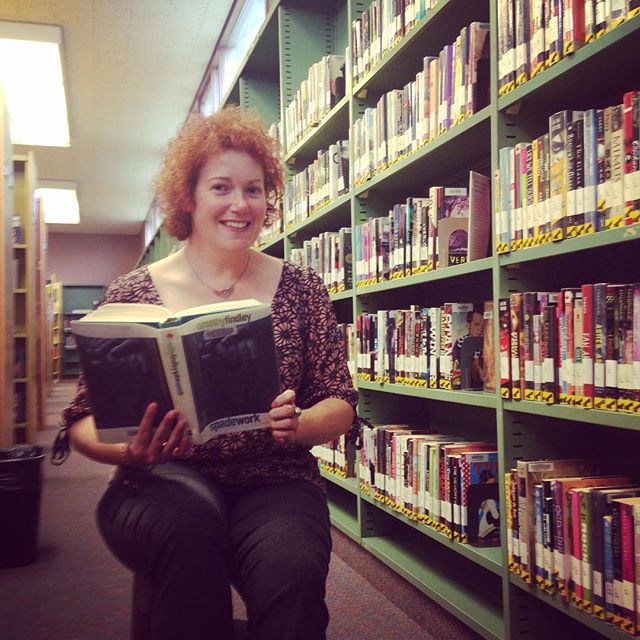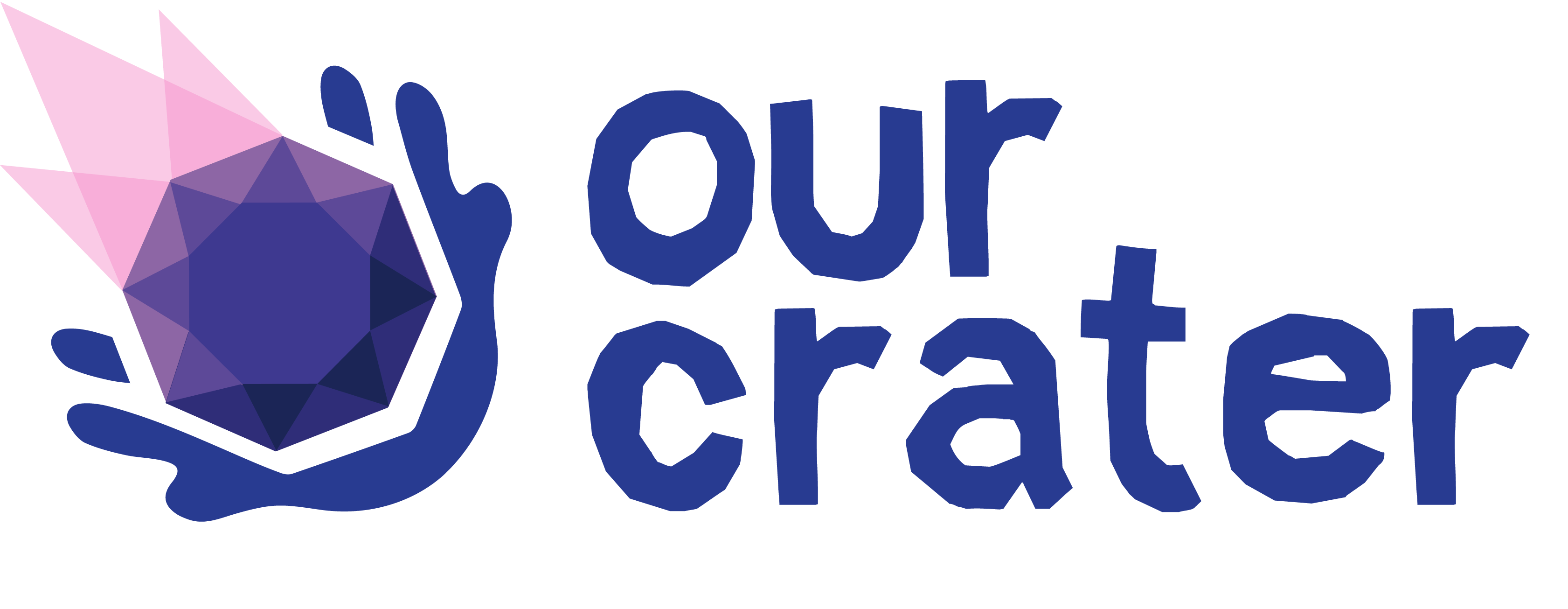BOOK TALK WITH GSPL: KIM FAHNER

Book Talk is a new monthly discussion on books with local Sudburians brought to you by Greater Sudbury Public Library. This on-going series will highlight conversations about the books that changed the lives of readers right here in Our Crater. This choice for this month (as we are speaking to current Poet Laureate Kim Fahner) relates to the fact that the Greater Sudbury Public Library is currently looking for the next Poet Laureate to serve a two-year term in Greater Sudbury. In case you didn’t know, a Poet Laureate serves as an active advocate for poetry, literacy, and literature by initiating and participating in readings and other events throughout the community. Local poets with a passion for advocacy of literacy and local heritage are invited to consider the role of Greater Sudbury’s fifth Poet Laureate at SudburyLibraries.ca or by calling 705-673-1155 for more details.
Kim Fahner is a teacher from the Sudbury Catholic District School Board, a poet, an author, and just an all-around fun person to be around. She released her fourth book of poems last month called Some Other Sky, which was published by Windsor’s Black Moss Press. Kim was Greater Sudbury’s first female Poet Laureate and will soon be passing over the title to someone new in 2018. In the past two years she has accomplished many things including bringing poetry to the hospital, the airport, the streets and our downtown sidewalks. Kim has a blog, The Republic of Poetry, which you can follow at https://kimfahner.wordpress.com and a website at www.kimfahner.com.
What are the books you remember from your early years?
My mother read The Little Prince by Antoine de Saint-Exupery to me when I was little and I loved the philosophical and spiritual notion that the most important things are the ones that are unseen. I love the quote that says, “What is important cannot be seen.” For me, the spiritual is woven into the physical. I find that I can sense it if I’m mindful of its presence. Poems, too, often arrive in mystic and magical ways. I love how the seen and unseen worlds co-exist. As Bronwen Wallace, one of my favourite poets once said, we need to be aware of how the extraordinary appears in the seemingly mundane rhythms of the ‘ordinary’ world. That’s where the poetry lives!
I read Jane Eyre by Charlotte Bronte in my teens. I loved how Jane was so spirited and independent in a time when women weren’t really supposed to be. She reminded me (and still does) of myself. She isn’t a weak heroine. She doesn’t just marry the man she loves. She leaves him when he lies to her, goes to find herself, and only then returns. After all that, Jane’s evolved into an even stronger woman and values herself as she should. I love stories where women evolve. The person you begin as, in your twenties, isn’t the person you evolve into in your forties. The richness of the prose, too, is beautiful, so filled with poetic imagery and symbolism.
Who are your favourite poets?
My favourite poets, the ones who most influence my work, are those who are deeply and firmly rooted in the natural world. I love the work of Wendell Berry and Mary Oliver, in particular. Both seem to speak of how natural landscapes are full of sacred things, doorways into deeper meanings and philosophies. I think of their work often, when I go canoeing, or swimming, or just walking down by Lake Ramsey. I also love trees, so Mary Oliver’s many poems and essays about trees really resonate with me.
Is there a book that has influenced you as a writer?
Not Wanted on the Voyage and Headhunter by Timothy Findley. These two books have lodged firmly in my heart, along with so many others that he wrote. I loved the quirky bits and characters in the first one, and I found myself in the second while I struggled with depression. This man was my first literary mentor, through the Humber School for Writers, and he taught me a great deal about learning how to see (and accept!) myself as a real writer. I had read all of his books and so I knew I loved his style of writing. We focused on my short stories rather than my poems. What he taught me was to research carefully, and to eavesdrop in public spaces. Listening to people’s conversations in public would help me to hear whether or not my own dialogue was natural and believable. He talked about the stories and voices inside his head and how there were so many that needed to be written. I understand that now. Ideas don’t stop, and it’s important to follow them from beginning to end.
Are there other books that have inspired or influenced you?
My friend, Bob Stewart, who works at Biblioasis in Windsor, suggested Embers by Richard Wagamese to me last fall when I was down reading at a laureate event. Since then, I look to it for wisdom about how to live on a daily basis. I miss Wagamese being on the planet, and wished I’d met him, or written him the letter I wanted to, but I can feel his voice and spirit when I read this book. (I’ve actually read all of his books…and love them.)
North by Seamus Heaney is another one. My Master’s thesis at Carleton University focused on Seamus Heaney’s bog poetry. It linked his work and imagery to art, as well as to the complexity of Irish politics and history. He (along with W.B. Yeats) influenced my formation as a young poet in my twenties. As someone who has inherited an Irish heritage on my mother’s side, I was raised by strong Irish Canadian women who brought me up on stories, songs, and kindness. That’s also how I discovered Yeats, in my great-grandfather’s house on Kingsmount, when my great aunt, Norah Kelly, read me “The Lake Isle of Innisfree,” and then I began to read Irish history and legend, and soon came to the poetry of Seamus Heaney and Patrick Kavanagh. My most amazing moment was meeting Heaney in a pub in Sligo the year before he died. I couldn’t speak. He smiled and we said ‘hello’ and I thought it sort of felt like meeting my poetic father. I miss him being on the planet, too.
In addition to these books, a number of other poets have influenced my work. I love the Romantics, especially Wordsworth and Coleridge, mostly for their notion of how the natural landscape, and the act of walking, actually influenced their creative process. I also love W. B. Yeats, Patrick Kavanagh, and Seamus Heaney. I’m moved by Bronwen Wallace’s work, and wished she had lived longer. I also love Gwendolyn MacEwen’s poems. Beyond that, I have always loved Neruda and Rilke. If I want to read a contemporary poet who can be cerebral and clever, I crave a bit of Billy Collins. He’s quirky with his imagery and turns of phrases. Other current poets whose work I admire include John Glenday and Jen Hadfield, both of whom were my mentors last summer at Moniack Mhor, Scotland’s Creative Writing Centre.
Recommended Posts

BLOOM ARTIST PROFILE: EYEDA SOPHIA
March 01, 2020

MAKING OF A DEBUT EP WITH MAX JOSÉ
February 11, 2020

WORDSTOCK SUDBURY HAS ARRIVED!
November 01, 2019

